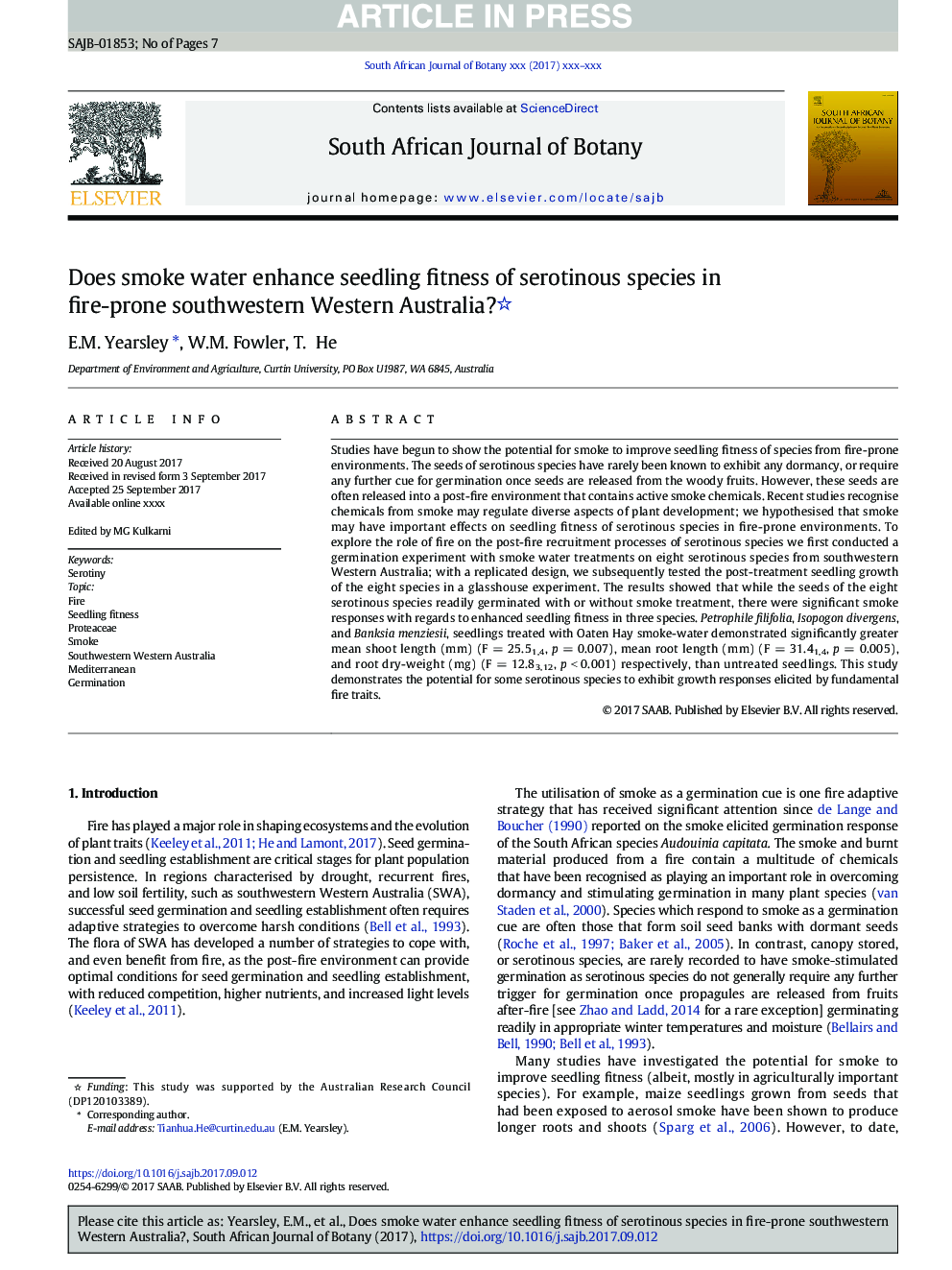| Article ID | Journal | Published Year | Pages | File Type |
|---|---|---|---|---|
| 8882314 | South African Journal of Botany | 2018 | 7 Pages |
Abstract
Studies have begun to show the potential for smoke to improve seedling fitness of species from fire-prone environments. The seeds of serotinous species have rarely been known to exhibit any dormancy, or require any further cue for germination once seeds are released from the woody fruits. However, these seeds are often released into a post-fire environment that contains active smoke chemicals. Recent studies recognise chemicals from smoke may regulate diverse aspects of plant development; we hypothesised that smoke may have important effects on seedling fitness of serotinous species in fire-prone environments. To explore the role of fire on the post-fire recruitment processes of serotinous species we first conducted a germination experiment with smoke water treatments on eight serotinous species from southwestern Western Australia; with a replicated design, we subsequently tested the post-treatment seedling growth of the eight species in a glasshouse experiment. The results showed that while the seeds of the eight serotinous species readily germinated with or without smoke treatment, there were significant smoke responses with regards to enhanced seedling fitness in three species. Petrophile filifolia, Isopogon divergens, and Banksia menziesii, seedlings treated with Oaten Hay smoke-water demonstrated significantly greater mean shoot length (mm) (F = 25.51,4, p = 0.007), mean root length (mm) (F = 31.41,4, p = 0.005), and root dry-weight (mg) (F = 12.83,12, p < 0.001) respectively, than untreated seedlings. This study demonstrates the potential for some serotinous species to exhibit growth responses elicited by fundamental fire traits.
Related Topics
Life Sciences
Agricultural and Biological Sciences
Agronomy and Crop Science
Authors
E.M. Yearsley, W.M. Fowler, T. He,
